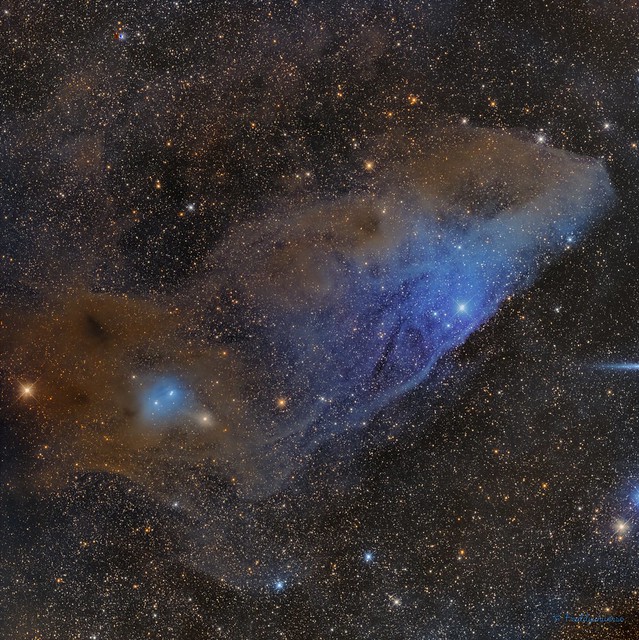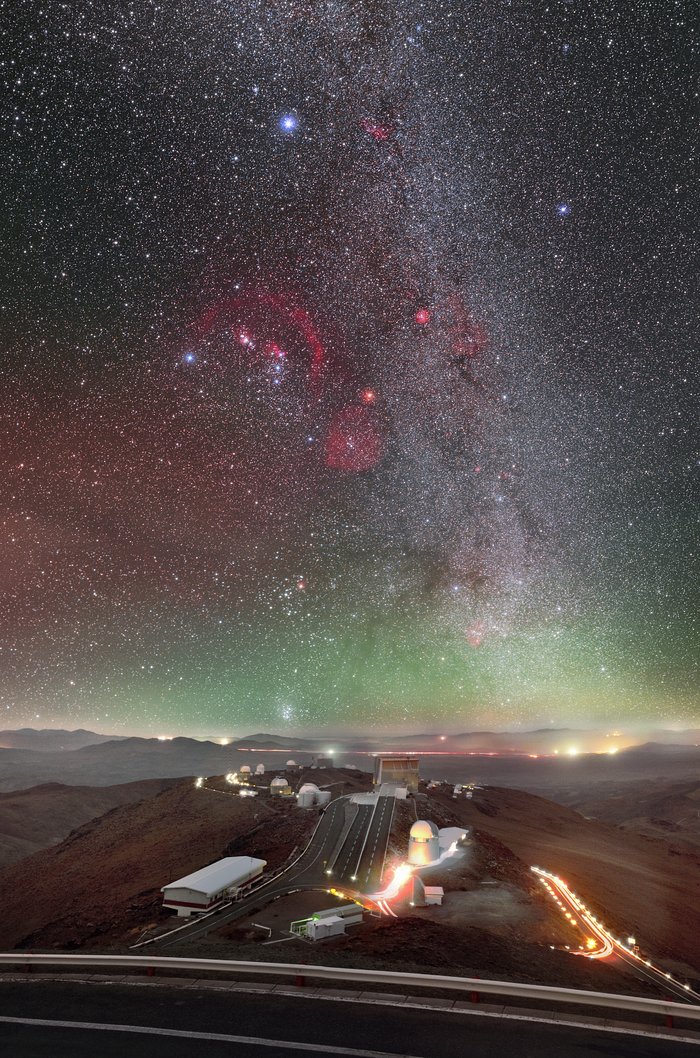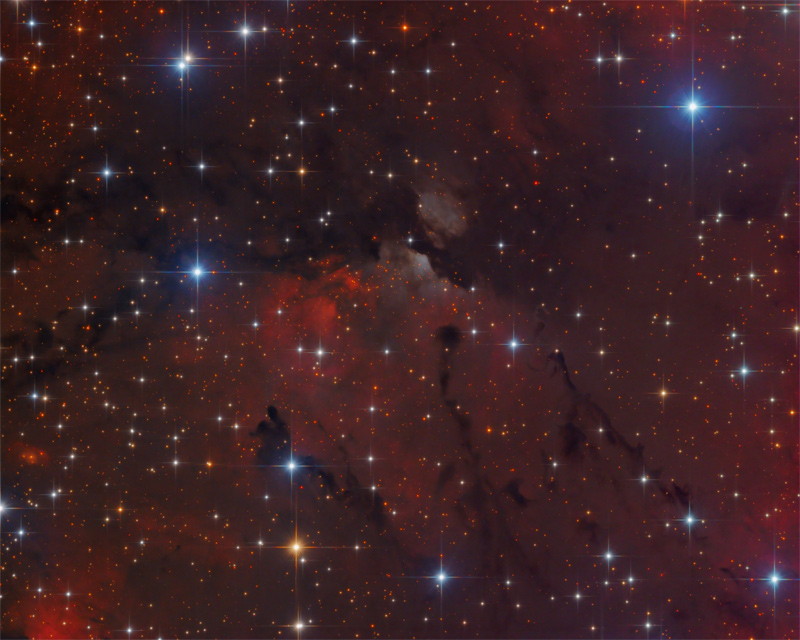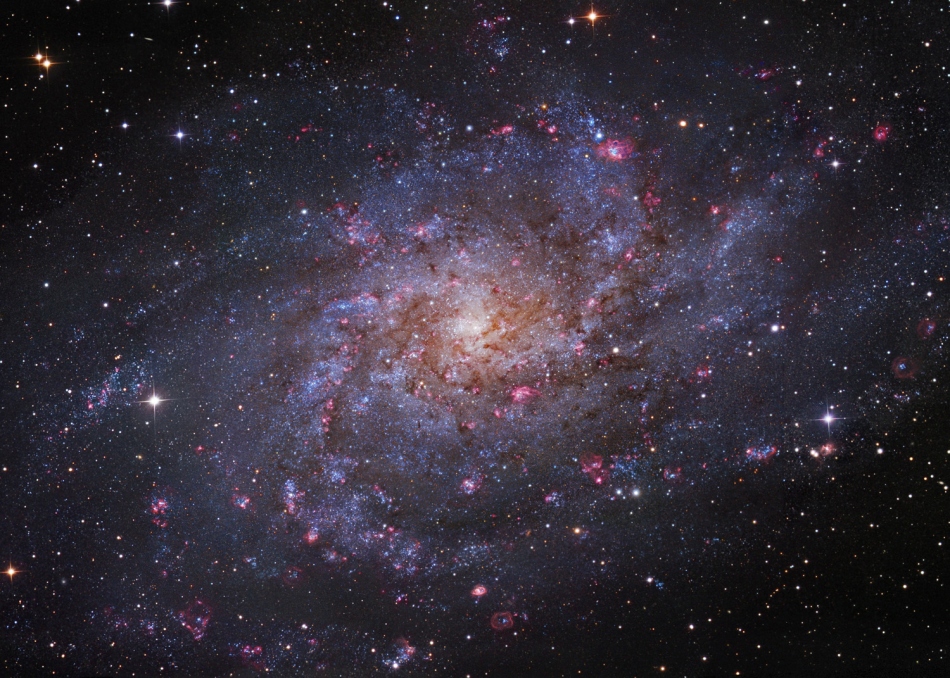Found Images: 2019 June
Found Images: 2019 June
Have you seen a great image or video somewhere that you think would make a great APOD? Nominate it for APOD! Please post as much information here as you have about the image/video with a link to any source(s) for it you know of here, and the editors will take a look.
When posting the image itself, please do not post anything larger than a thumbnail here; please honor the copyright holder's copyright.
Please keep hotlinked images under 400K.
Thank you!
<< Previously
Know the quiet place within your heart and touch the rainbow of possibility; be
alive to the gentle breeze of communication, and please stop being such a jerk. — Garrison Keillor
alive to the gentle breeze of communication, and please stop being such a jerk. — Garrison Keillor
-
starsurfer
- Stellar Cartographer
- Posts: 5409
- Joined: Thu Mar 15, 2012 7:25 pm
-
starsurfer
- Stellar Cartographer
- Posts: 5409
- Joined: Thu Mar 15, 2012 7:25 pm
Re: Found Images: 2019 June
NGC 5307
http://www.chart32.de/index.php/component/k2/item/293
Copyright: CHART32
Processing: Johannes Schedler
http://www.chart32.de/index.php/component/k2/item/293
Copyright: CHART32
Processing: Johannes Schedler
-
barretosmed
- Science Officer
- Posts: 482
- Joined: Thu Oct 12, 2017 6:04 pm
Re: Found Images: 2019 June
NGC 4945
The large spiral galaxy NGC 4945 is border view close to the center of this picture of the cosmic galaxy. In fact, the NGC 4945 is almost the size of our Milky Way galaxy.
At about 13 million light-years away from the extensive southern constellation of Centaurus, NGC 4945 is only six times as far away as Andromeda, the great spiral galaxy closest to the Milky Way (not taking into account Magellan's clouds, which to me are just satellite galaxies of ours).
Subsequent observations revealed that NGC 4945 has an active nucleus, which means that its central bulge emits much more energy than calmer galaxies, such as the Milky Way. Scientists classify NGC 4945 as a Seyfert galaxy, since then, astronomers have suspected that a supermassive black hole causes intense agitation in the center.
IMAGE WITH BEST DETAILS:
https://www.astrobin.com/full/408148/0/?nc=user
Processing:
APT - Astro Photography Tool, PHD, Skytechx, PixInsight, Adobe Photoshop
EQUIPMENT:
Esprit 150mm triplet
QHY 16200a LRGB
30x500 + 54x300
Munhoz - MG - Brazil
Copyright: Fernando Oliveira de Menezes
The large spiral galaxy NGC 4945 is border view close to the center of this picture of the cosmic galaxy. In fact, the NGC 4945 is almost the size of our Milky Way galaxy.
At about 13 million light-years away from the extensive southern constellation of Centaurus, NGC 4945 is only six times as far away as Andromeda, the great spiral galaxy closest to the Milky Way (not taking into account Magellan's clouds, which to me are just satellite galaxies of ours).
Subsequent observations revealed that NGC 4945 has an active nucleus, which means that its central bulge emits much more energy than calmer galaxies, such as the Milky Way. Scientists classify NGC 4945 as a Seyfert galaxy, since then, astronomers have suspected that a supermassive black hole causes intense agitation in the center.
IMAGE WITH BEST DETAILS:
https://www.astrobin.com/full/408148/0/?nc=user
Processing:
APT - Astro Photography Tool, PHD, Skytechx, PixInsight, Adobe Photoshop
EQUIPMENT:
Esprit 150mm triplet
QHY 16200a LRGB
30x500 + 54x300
Munhoz - MG - Brazil
Copyright: Fernando Oliveira de Menezes
ESO: The Hunter and La Silla
The Hunter and La Silla
ESO Picture of the Week | 2019 Jun 03
ESO Picture of the Week | 2019 Jun 03
This stunning long-exposure photograph by ESO Photo Ambassador Petr Horálek captures the hive of activity that is ESO’s La Silla Observatory, the distant glow of roads and settlements in the Chilean Atacama Desert, and the unmissable faint green radiance of airglow (produced by light in Earth’s upper atmosphere).
Flirting with the horizon, the mythical Seven Sisters of the Pleiades open star cluster can be seen dancing above distant mountain peaks. Directly above them, the dazzling constellation of Orion (The Hunter) dominates the view, as giant clouds and arcs of ionised gas — called emission nebulae, and seen here as red patches — encompass the imagined form of mythological hunter. The familiar sight of the Milky Way is also visible, carving its way across the night sky.
The La Silla Observatory is located in northern Chile at an altitude of 2400 metres. It enjoys some of the darkest night skies on Earth and has been an ESO stronghold since the 1960s. This spectacular shot was captured from the vantage point of ESO’s 3.6-metre telescope — one of the most productive four-metre-class telescopes in the world.
Know the quiet place within your heart and touch the rainbow of possibility; be
alive to the gentle breeze of communication, and please stop being such a jerk. — Garrison Keillor
alive to the gentle breeze of communication, and please stop being such a jerk. — Garrison Keillor
HEIC: Galactic Maturity (NGC 7773)
Galactic Maturity
ESA Hubble Picture of the Week | 2019 Jun 03
ESA Hubble Picture of the Week | 2019 Jun 03
This striking image was taken by the NASA/ESA Hubble Space Telescope’s Wide Field Camera 3 (WFC3), a powerful instrument installed on the telescope in 2009. WFC3 is responsible for many of Hubble’s most breathtaking and iconic photographs, including Pictures of the Week.
Shown here, NGC 7773 is a beautiful example of a barred spiral galaxy. A luminous bar-shaped structure cuts prominently through the galaxy's bright core, extending to the inner boundary of NGC 7773's sweeping, pinwheel-like spiral arms. Astronomers think that these bar structures emerge later in the lifetime of a galaxy, as star-forming material makes its way towards the galactic centre — younger spirals do not feature barred structures as often as older spirals do, suggesting that bars are a sign of galactic maturity. They are also thought to act as stellar nurseries, as they gleam brightly with copious numbers of youthful stars.
Our galaxy, the Milky Way, is thought to be a barred spiral like NGC 7773. By studying galactic specimens such as NGC 7773 throughout the Universe, researchers hope to learn more about the processes that have shaped — and continue to shape — our cosmic home.
Know the quiet place within your heart and touch the rainbow of possibility; be
alive to the gentle breeze of communication, and please stop being such a jerk. — Garrison Keillor
alive to the gentle breeze of communication, and please stop being such a jerk. — Garrison Keillor
-
starsurfer
- Stellar Cartographer
- Posts: 5409
- Joined: Thu Mar 15, 2012 7:25 pm
Re: Found Images: 2019 June
-
starsurfer
- Stellar Cartographer
- Posts: 5409
- Joined: Thu Mar 15, 2012 7:25 pm
Re: Found Images: 2019 June
NGC 2170
http://www.karelteuwen.be/photo_page.ph ... 0&album=19
Copyright: Karel Teuwen Interestingly this image does not include NGC 2182.
http://www.karelteuwen.be/photo_page.ph ... 0&album=19
Copyright: Karel Teuwen Interestingly this image does not include NGC 2182.
-
Freddyuniverse
- Ensign
- Posts: 19
- Joined: Tue Jul 24, 2018 11:15 pm
Re: Found Images: 2019 June
IC4592 - IC4601 Blue Horse Head Nebula
https://www.freddyuniverse.com/galeria- ... nebulosas/
Copyright: Freddyuniverse , Alfredo Sayalero
Blue Horse Head Nebula in the constellation of Scorpio. I already played after months without doing Astrophoto, and on May 31st I had the opportunity to take out this wonderful Astrophotography, with the added surprise that the asteroid Ceres passed through the same region, it can be seen in the upper left part of the photo, I also put a cut of that corner with Ceres and a Gif of the 52 images that make up the Astrophotography where the apparent route of Ceres during the four hours of the exhibition lasted. To see it in high resolution with all the data on my website

IC4592 - IC4601 by Freddy S., en Flickr

Ceres recorte by Freddy S., en Flickr https://image.jimcdn.com/app/cms/image/ ... /image.gif
https://www.freddyuniverse.com/galeria- ... nebulosas/
Copyright: Freddyuniverse , Alfredo Sayalero
Blue Horse Head Nebula in the constellation of Scorpio. I already played after months without doing Astrophoto, and on May 31st I had the opportunity to take out this wonderful Astrophotography, with the added surprise that the asteroid Ceres passed through the same region, it can be seen in the upper left part of the photo, I also put a cut of that corner with Ceres and a Gif of the 52 images that make up the Astrophotography where the apparent route of Ceres during the four hours of the exhibition lasted. To see it in high resolution with all the data on my website

IC4592 - IC4601 by Freddy S., en Flickr

Ceres recorte by Freddy S., en Flickr https://image.jimcdn.com/app/cms/image/ ... /image.gif
Last edited by bystander on Wed Jun 05, 2019 2:28 am, edited 2 times in total.
Reason: Please no hot links to images > 500kb. Uploaded as an attachment.
Reason: Please no hot links to images > 500kb. Uploaded as an attachment.
-
starsurfer
- Stellar Cartographer
- Posts: 5409
- Joined: Thu Mar 15, 2012 7:25 pm
-
starsurfer
- Stellar Cartographer
- Posts: 5409
- Joined: Thu Mar 15, 2012 7:25 pm
-
starsurfer
- Stellar Cartographer
- Posts: 5409
- Joined: Thu Mar 15, 2012 7:25 pm
Re: Found Images: 2019 June
NGC 2183-5
http://www.caelumobservatory.com/gallery/n2185.shtml
Copyright: Adam Block/Mount Lemmon SkyCenter/University of Arizona
http://www.caelumobservatory.com/gallery/n2185.shtml
Copyright: Adam Block/Mount Lemmon SkyCenter/University of Arizona
-
starsurfer
- Stellar Cartographer
- Posts: 5409
- Joined: Thu Mar 15, 2012 7:25 pm
Re: Found Images: 2019 June
-
starsurfer
- Stellar Cartographer
- Posts: 5409
- Joined: Thu Mar 15, 2012 7:25 pm
HEIC: An Explosive Galaxy (NGC 4051)
An Explosive Galaxy
ESA Hubble Picture of the Week | 2019 Jun 10
ESA Hubble Picture of the Week | 2019 Jun 10
When massive stars die at the end of their short lives, they light up the cosmos with bright, explosive bursts of light and material known as supernovae. A supernova event is incredibly energetic and intensely luminous — so much so that it forms what looks like an especially bright new star that slowly fades away over time.
These exploding stars glow so incredibly brightly when they first form that they can be spotted from afar using telescopes such as the NASA/ESA Hubble Space Telescope. The subject of this image, a spiral galaxy named NGC 4051 — about 45 million light-years from Earth — has hosted multiple supernovae in past years. The first was spotted in 1983 (SN 1983I), the second in 2003 (SN 2003ie), and the most recent in 2010 (SN 2010br). These explosive events were seen scattered throughout the centre and spiral arms of NGC 4051.
The SN 1983I and SN 2010br were both categorised as supernovae of type Ic. This type of supernova is produced by the core collapse of a massive star that has lost its outer layer of hydrogen and helium, either via winds or by mass transfer to a companion. Because of this, type Ic — and also type Ib — supernovae are sometimes referred to as stripped core-collapse supernovae.
This galaxy’s beautiful spiral structure can be seen well in this image, along with other intriguing objects (including an emission-line galaxy known as SDSS J120312.35+443045.1, visible as the bright smudge to the lower middle of the image, beneath the sweeping arm of NGC 4051). NGC 4501 sits in the southern part of a cluster of galaxies known as the Ursa Major I Cluster; this cluster is especially rich in spirals such as NGC 4051, and is a subset of the larger Virgo Supercluster, which also houses the Milky Way.
Know the quiet place within your heart and touch the rainbow of possibility; be
alive to the gentle breeze of communication, and please stop being such a jerk. — Garrison Keillor
alive to the gentle breeze of communication, and please stop being such a jerk. — Garrison Keillor
-
starsurfer
- Stellar Cartographer
- Posts: 5409
- Joined: Thu Mar 15, 2012 7:25 pm
Re: Found Images: 2019 June
NGC 4559
http://astro-koop.de/?attachment_id=2022
Copyright: Stefan Heutz, Wolfgang Ries and Michael Breite
http://astro-koop.de/?attachment_id=2022
Copyright: Stefan Heutz, Wolfgang Ries and Michael Breite
-
starsurfer
- Stellar Cartographer
- Posts: 5409
- Joined: Thu Mar 15, 2012 7:25 pm
-
starsurfer
- Stellar Cartographer
- Posts: 5409
- Joined: Thu Mar 15, 2012 7:25 pm
-
starsurfer
- Stellar Cartographer
- Posts: 5409
- Joined: Thu Mar 15, 2012 7:25 pm
-
starsurfer
- Stellar Cartographer
- Posts: 5409
- Joined: Thu Mar 15, 2012 7:25 pm
-
starsurfer
- Stellar Cartographer
- Posts: 5409
- Joined: Thu Mar 15, 2012 7:25 pm
Re: Found Images: 2019 June
starsurfer wrote: ↑Sat Jun 15, 2019 7:23 pm NGC 7793
https://www.eso.org/public/images/eso0914b/
Copyright: ESO
M33. Image Credit & Copyright: Robert Gendler, Subaru Telescope (NAOJ)
Image data: Subaru Telescope, Robert Gendler, Brigham Young University Obs.,
Johannes Schedler
Image data: Subaru Telescope, Robert Gendler, Brigham Young University Obs.,
Johannes Schedler
Sure there are differences, but sure there are similarities too, aren't there?
Ann
Color Commentator
-
starsurfer
- Stellar Cartographer
- Posts: 5409
- Joined: Thu Mar 15, 2012 7:25 pm
Re: Found Images: 2019 June
They do look similar and I think both have a good population of Wolf Rayet stars.Ann wrote: ↑Sat Jun 15, 2019 8:10 pmstarsurfer wrote: ↑Sat Jun 15, 2019 7:23 pm NGC 7793
https://www.eso.org/public/images/eso0914b/
Copyright: ESO
When I first saw that picture of NGC 7793, my first thought was, Oh, that's another picture of M33.M33. Image Credit & Copyright: Robert Gendler, Subaru Telescope (NAOJ)
Image data: Subaru Telescope, Robert Gendler, Brigham Young University Obs.,
Johannes Schedler
Sure there are differences, but sure there are similarities too, aren't there?
Ann
-
starsurfer
- Stellar Cartographer
- Posts: 5409
- Joined: Thu Mar 15, 2012 7:25 pm
-
starsurfer
- Stellar Cartographer
- Posts: 5409
- Joined: Thu Mar 15, 2012 7:25 pm







